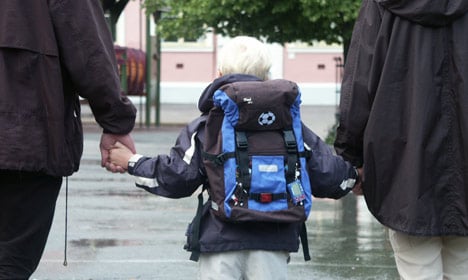EDUCATION
Danish students have most education hours
Danish students have the most compulsory education hours amongst all OECD countries, according to a newly-released annual education report.
Published: 25 November 2015 11:00 CET

With 10,040 learning hours across ten years of education, Danish students receive more instruction than pupils in any of the 33 OECD nations, the organization’s ‘Education at a Glance 2015’ report revealed.
Denmark’s top-place spot in the OECD comparison is a direct result of the comprehensive school reform implemented at the outset of the 2014 school year. The reform, described as the most comprehensive schooling change in modern Danish history, introduced longer school days for students of all grade levels and took total compulsory instruction time from 8,070 hours to 10,040 across students’ ten years of education.
See also: Denmark's public schools enter a new era
“This sharp increase makes Denmark the country with by far the highest figure among the OECD, for which the average is 7,570 hours,” the report read.
The school reform was highly controversial and carried with it the bitter memories of a conflict over teachers’ working hours that resulted in a three-week teacher lockout in April 2013, which affected 875,000 students and course participants – including over 550,000 public school students – and turned many parents sour on the reform package.
One of the key figures in the lockout and reform debate was Anders Bondo Christensen, the head of the Danish Union of Teachers (Danmarks Lærerforening). He told Berlingske that the OECD results show that the reform has focused on quantity over quality.
“It is of course fine with the many good instruction hours, but the one-sided focus on quantity is completely wrong and the politicians need to quickly figure that out. With the massive extension of instruction time, which the politicians have not been willing to pay for, the costs per education hour have plummeted when we look at similar countries,” he said.
See also: Denmark spends most on education: OECD
According to the OECD report, Denmark is still the country that “invests the greatest share of its wealth in primary, secondary and post-secondary non-tertiary education”. Denmark spent five percent of its gross domestic product on educational institutions.
The OECD also found that “Danish teachers earn more than the OECD average at nearly every stage in their careers and across all levels, but teach much longer hours.”
Unlike Christensen, who said the first place finish for education hours is nothing Denmark should be proud of, the former head of the Programme for International Student Assessment (PISA) in Denmark said the increase in school hours is clearly a good thing for the nation’s students.
“I’m one of those who have been yelling and screaming since 1984 that education time in Denmark is too short and that there is not enough time to do everything that needs to be done. It was particularly the weaker students who needed more time. So I think it is fine to be in first place,” Niels Egelund told Berlingske.
Url copied to clipboard!


 Please whitelist us to continue reading.
Please whitelist us to continue reading.
Member comments